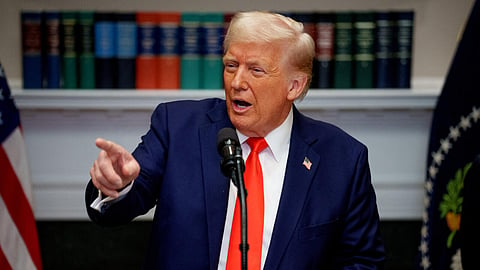
- NEWS
- the EDIT
- COMMENTARY
- BUSINESS
- LIFE
- SHOW
- ACTION
- GLOBAL GOALS
- SNAPS
- DYARYO TIRADA
- MORE

US President Donald Trump announced a one-month delay on tariffs for auto imports from Mexico and Canada. This news gave the global auto industry — and Asian markets, including the Philippines — a brief moment of relief.
We might not be shipping complete cars overseas, but many auto parts are made locally here. If heavy tariffs had hurt the US auto industry, our local suppliers could have faced fewer orders and more negative supply chain impact. This delay gives companies a bit of extra time to adjust and keep things moving.
The Philippine Stock Exchange even saw a small uptick after the announcement, showing that investors across Asia took the news as a sign of hope. It also reminds us how important steady free trade is for our economy.
For local auto parts makers, it’s a signal to stay flexible. We might need to look into leveraging our strong ties to Japan, China, and other ASEAN neighbors if things get shaky in North America.
In addition, China just announced a 5 percent growth target and some economic stimulus plans. With our close trade links with China, any boost there could mean more orders for our materials and components.
For car buyers in the Philippines, the change could be indirect. Most of our cars come from Japan, Korea and China, so this one-month delay might not directly change the price at the dealership. But, if US economic uncertainty drags on, it will likely affect the peso as well and could eventually impact car prices and financing.
The tariff delay is only temporary. The global trade scene can shift quickly, and our automotive sector needs to stay ready for any new surprises. For now, it’s a chance for a little breather, but staying prepared for future twists is still key.
